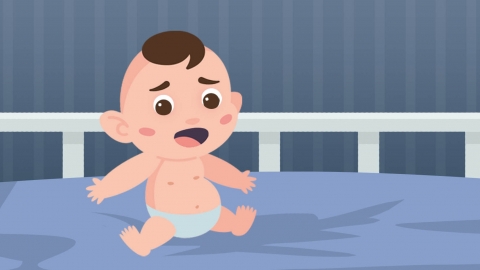What preparations should be made when a six-month-old baby starts teething?
Generally speaking, preparations needed when a six-month-old baby starts teething include providing appropriate teething tools, preparing oral cleaning supplies, paying attention to the baby's nutrient intake, monitoring emotional changes, and implementing safety measures. A detailed analysis is as follows:

1. Provide appropriate teething tools
You can prepare teething rings or teethers for the baby. These are typically made from safe, non-toxic silicone materials and come in various shapes and textures, such as soft ones or those with raised bumps. They can relieve the baby's gum discomfort during teething. When the baby chews on the teether, it provides a massaging effect on the gums, which helps the teeth erupt.
2. Prepare oral cleaning supplies
Prepare soft infant oral cleaning gauze or finger toothbrushes. Once the baby's teeth start coming in, oral hygiene becomes increasingly important. These cleaning tools can be moistened with warm water after feeding or eating, and then gently wiped across the baby's gums, teeth, and oral mucosa to remove residual milk residue and food particles, preventing tooth decay and oral infections.
3. Pay attention to the baby's nutrient intake
Ensure the baby receives sufficient calcium, phosphorus, vitamin D, and other essential nutrients. Calcium and phosphorus are the main components of teeth, and vitamin D promotes calcium absorption. Calcium intake can be ensured through breast milk or formula, and after starting solid foods, you can appropriately feed the baby calcium-rich foods such as dairy products and tofu.
4. Monitor changes in the baby's emotions
Babies may become irritable and restless during teething due to gum discomfort. Parents should spend more time with the baby, using comfort toys or gentle music to soothe their emotions. At the same time, parents should be aware of possible sleep disturbances, such as frequent night waking, and offer patient reassurance to help the baby fall back asleep.
5. Implement safety precautions
After the baby starts teething, they tend to chew on various objects. Ensure that items around the baby are safe and non-toxic, avoiding small or sharp objects such as coins or small beads, which could pose a choking hazard if swallowed.
Additionally, do not let the baby fall asleep with a bottle. Sugar from the milk can remain in the mouth, where bacteria break it down, potentially causing tooth decay. This issue should be addressed even before teething begins, to establish good feeding habits.







